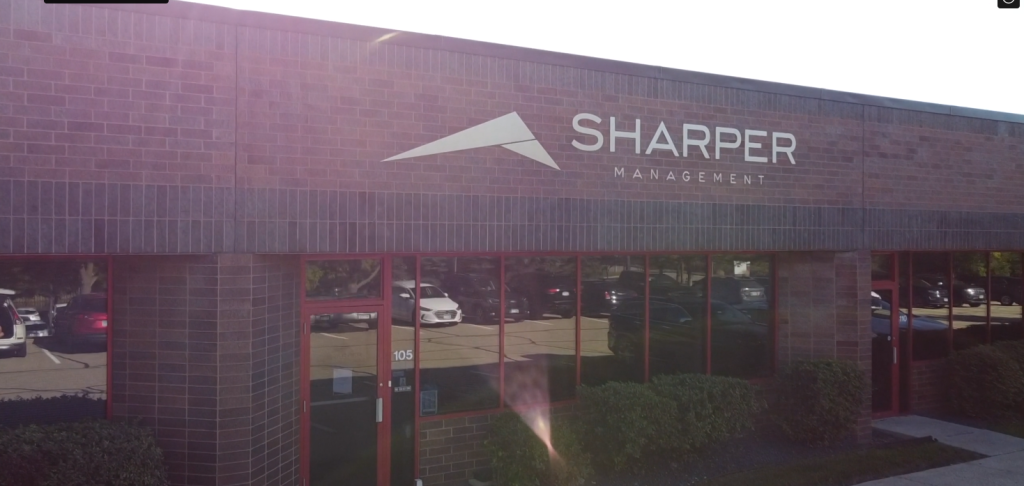Communication is Key: Forging Stronger Communities through Effective HOA Communication

The Foundation of Community Harmony Effective communication lies at the heart of a thriving Homeowners Association (HOA). In this blog post, we will delve into the critical role of clear and transparent communication within an HOA, exploring why it is the foundation for building stronger, more harmonious communities. The Significance of Clear Communication in HOAs Clear communication is the lifeblood of any community, and HOAs are no exception. Your community wants to feel heard, and they also want to feel valued, which does not happen without communication. If you are implementing changes, those changes need to be effectively communicated to establish trust along with cooperation. When people feel left in the dark when it comes to changes, negativity and anger can arise, which is never good. It is important to show through your communication efforts a sense of unity among residents to create a healthy community environment. The Impact on Community Engagement When communication is conducted effectively, community engagement improves along with transparency. Residents will feel more inclined to join community events, participate in discussions and create a sense of belonging. This can even open the door to new initiatives created when people feel like they are in a positive environment to want to make positive changes themselves. Tips for Successful Communication Strategies in HOAs 1. Regular Newsletters and Updates: Explore the power of regular newsletters or community updates distributed through various channels. Sharing consistent information keeps residents informed about upcoming events, policy changes, and other crucial updates. 2. Digital Platforms for Community Interaction: Communication through social media and online forums is another great communication strategy. These channels provide a space for residents to voice concerns, share ideas, and connect with their neighbors. 3. Town Hall Meetings and Open Forums: Town hall meetings and open forums create a platform for direct communication between the HOA board and residents. By creating regularly scheduled meetings can improve transparency and address concerns in real-time. 4. Utilizing Email and Text Notifications: Email and text notifications for urgent updates or time-sensitive information is a great way to keep your community informed. These channels ensure that residents receive critical information promptly. Handling Conflict Through Effective Communication Conflict is inevitable, but effective communication can be a powerful tool for resolution. By effectively communicating the rules set for your community, you leave less room for confusion or interpretation and more room for transparency and guidelines. There can come times when conflicts arise internally between other community members and by having clearly defined rules prevents these conflicts from escalating. Building a Culture of Transparency As mentioned earlier, transparency is crucial to maintaining a healthy community and should be considered a cultural cornerstone within an HOA. Setting a culture of transparency, openness and honesty builds trust among residents. In turn, by being as transparent with residents as possible promotes a positive community atmosphere. Elevating Community Living Through Clear Communication Having successful communication tactics lead to running a healthy HOA. By being transparent with your community through various forms of communication, you keep your residents happy and informed. It is not just a necessity but a catalyst for building vibrant communities. Take advantage of multiple communication strategies from newsletters to open forums. Continual communication efforts are required to maintain a healthy community. Ready to elevate your HOA management? Contact us today to learn more about Sharper Management’s HOA property management services. Sharper Management is a locally-owned, mid-sized property management company offering a full-suite of premiere services to the Minneapolis-St. Paul seven-county area.
A Look Ahead to 2024 & Back at 2023

2023 has been another great year for Sharper Management! To name just a few successes— Continued growth in welcoming 31-new clients. In doing so, we passed a milestone of 200 associations managed. We also continue a strong retention rate of existing clients. We opened a satellite office in Maple Grove. This summer we rolled out significant upgrades to our software platform and web portal offering – perhaps most notably, a wonderful architectural request tracking and approving feature. This winter we will be integrating new software to help streamline the scheduling and management of our maintenance team. We continue our passion for training. We offered four sessions attended by nearly 200 Board members, representing over 60 different associations This spring we also rolled out our Educational Video Library, featuring 90 videos on dozens of different topics. We had another successful Sharper Scramble Golf Tournament and for the first time ever we topped $10,000 in proceeds, which were donated to the Multiple Myeloma Research Foundation. Sharper was also a feature of our industry’s trade organization (Community Association Institute) annual Vision Awards – receiving nine nominations. See Vision Awards article for details. The achievements of 2023 are many. What we continue to be most proud of, however, is the cohesion and growth of our talented team. We welcomed five new managers this year, each of them a seasoned veteran, uniquely talented, with years of industry experience. We also added positions in our Accounting, Maintenance and Client Care departments. And in an industry plagued by retention issues, we continue to excel in our staff retention. As we look to 2024, we have lots of exciting things on the horizon. See the 2024 Event Calendar article below. We look forward to sharing updates with you through these quarterly newsletters. All of us at Sharper would like to thank you for being a valued client. We thank you for being a part of a great 2023 and look forward to an exciting 2024. And, finally, we wish you and your family a safe, healthy and happy Holiday Season! Legislative Changes Effecting HOAs The 2023 legislative session in Minnesota was an active one. There were a number of significant bills that will, and have, impacted community associations in the state. Some legislative items went into effect this year. See our July newsletter for a detailed listing. As we approach 2024, there is one significant bill that effects some standard day-to-day operations and governance of your association. Violations & Rule Enforcement – in effort to create more uniformity in how rule violations are notified, fines assessed and appeals processed, the Minnesota Common Interest Ownership Act (MCIOA) was amended to create further standards. What it Says – any fine associated with a rule violation has to meet seven specific criteria or it could be challenged in a court. Homeowners are also entitled to a more consistent processes for an appeal and hearing of said fine. Who it Affects – all associations that are currently under MCIOA, which is any association built after June 1, 1994 – and any condominium association regardless of when it was established. What it Means – Any fine and certain assessments must be accompanied by a dated, written notice to the Owner that includes seven specific pieces of information. (1) states the amount and reason for the fine or assessment (2) for fines levied under section 515B.3-102(a)(11) [VIOLATION OF GOVERNING DOCUMENTS], specifies: (i) the violation for which a fine is being levied and the date of the levy; and (ii) the specific section of the declaration, bylaws, rules, or regulations allegedly violated; (3) for assessments levied under section 515B.3-115(g) or 515B.3-1151(g) [DAMAGE TO COMMON ELEMENTS OR A UNIT], identifies: (i) the damage caused; and (ii) the act or omission alleged to have caused the damage; (4) states that all unpaid fines and assessments are liens which, if not satisfied, could lead to foreclosure of the lien against the owner’s unit; (5) describes the unit owner’s right to be heard by the board or a committee appointed by the board; (6) states that if the assessment, fine, late fees, and other allowable charges are not paid, the amount may increase as a result of the imposition of attorney fees and other collection costs; and (7) informs the unit owner that homeownership assistance is available from the Minnesota Homeownership Center When it Goes into Effect – January 1, 2024
What Makes a Great HOA Board Member?

HOA board members take on a lot of responsibility, and it’s important for your board to be made up of qualified individuals. Whether you’re voting for new members or want to serve as one, here are some traits that make a great HOA board member. Enjoy Volunteering First of all, board members need to enjoy the volunteer work they’re doing. Being on the board involves time and patience, so members need to serve the community without expecting something in return. Take the Role Seriously The decisions that the board makes impact the community, so the role needs to be taken seriously. You’re protecting the investment of homeowners, and they’re counting on you to make the right decisions. Be Consistent Part of your responsibility as a board member is enforcing the rules. Being selective about which rules are enforced makes the entire board look unprofessional and can upset homeowners. Be Empathetic Sometimes you have to make tough decisions that won’t make everyone happy. It’s important to stay positive and understand where residents are coming from with their frustrations. They will appreciate having someone to truly listens to their concerns. Cooperate & Collaborate Even if you vote against a motion and it passes, stand united with the board and support the decision. You’re here to serve the community, not yourself. In addition, it’s important to understand that you are always working as a unit, and in order to do so, you’ll need to work well with others. Be Detail-Oriented A strong board member will understand the governing documents in order to have efficient meetings and make the right decisions. Attention to detail and ability to look at the small picture will ensure nothing gets missed and rules are being followed. Sharper Management’s mission is to provide common interest communities the highest quality management services through a culture of communication, teamwork, and growth.
Selling in your HOA

Thinking of selling your home? Now is the time! Real estate is hot, hot, hot. The current shortage of homes for sale stems back to Spring of 2020, as COVID-19 hit just before selling season. There is still very limited inventory, but there are plenty of buyers. Because the demand is so high and the supply is low, the value of your home goes up. Mortgage and interest rates are historically cheap, but listing prices remain high. When selling in an HOA, there are certain steps and processes to take. Begin by reviewing your Governing Documents for your Association. Potential buyers will want to see documents pertaining to: Monthly Association fees Master insurance policy Bylaws, rules, & regulations Recent Association financial statements Current special assessments It’s a good idea to hire a realtor who has experience selling properties in HOA’s. They will be able to assist you in gathering all the necessary documents. We also recommend cleaning and staging furniture and décor to really show off the space. This will help them to envision their own items in the home.
Summer Noise, Courtesy, and Your HOA’s Rules

Summer is filled with friends, family, fun, and, unfortunately, noise. People are outside later at night in the season of graduation and block parties, and the noise only escalates surrounding the 4th of July with sounds of fireworks. It’s important to be courteous to your neighbors; as the old saying goes, treat others the way you want to be treated. You have every right to have fun this summer, but be aware of your noise level during parties or late nights. Your HOA likely already has rules in place about noise, as issues like barking dogs aren’t unique to any one season. These rules should extend to seasonal noise, like fireworks. In Minnesota, firecrackers and any other sky explosives are illegal. However, even small, legal fireworks make sound, and that noise is accompanied by the sounds of family and friend get togethers. Depending on your HOA, some noise rules may be harder to enforce than others. Talk to your neighbors if any issues arise, and if necessary, bring your concerns to the board. If enough issues arise, the board will take your input into account when revising your HOA’s rules. Always be courteous and respectful, but keep tabs on your noise to make sure you aren’t irritating other residents this summer
Board Tip: Tabling vs. Postponing Agenda Items

While each HOA may conduct business differently, a standard procedure for board meetings is essential to optimize efficiency and productivity, commonly known as Parliamentary Procedure. Some boards use Robert’s Rules of Order to create the meeting format, agendas, motions, and floor discussion, while others create their own procedures. But, even with a solid structure to a meeting, certain topics will have heavier debate than others. Whether members don’t have enough information on the topic, or it’s too sensitive, the board will either “table” or “postpone” that item. Postpone If the board decides that the item is taking up too much time, or the members’ time would better be spent on something else, they can decide to postpone the matter. With this structure, the board intends to take the matter back up at a later time, whether in the same meeting or a future one. These items can be postponed to a definite time. The motion to postpone can be debated by members. There are, however, indefinite postponements, where the board has no particular intention of taking the matter back up. If an item is postponed indefinitely, the matter cannot be brought up in the same meeting. Table Following Robert’s Rules of Order, a motion to lay an item “on the table” takes precedence over all other motions at the time that it is made. This motion cannot be debated and needs a majority and a second to carry the motion. However, with laying an item on the table, that matter doesn’t automatically come up in the next meeting. There has to be a motion to take that topic off the table. And, the motion to take the matter off the table can only be done during certain classes of business, such as “unfinished business” or “general orders.” This motion also needs a second and a majority. As your Minnesota neighbors, Sharper Management works to keep your HOA board of directors informed to ensure efficient leadership.
HOA Insurance Policies

For residents and HOA board members, there seems to be a lot of lingo when it comes to insurance. How do you know which policies cover which property? How do you know what insurance requirements to make when managing an association? We’ve explained the “walls out” and “walls in” policies to help you understand what each one covers. Master Policy This policy is also known as the HOA insurance policy and covers liabilities or damages in common areas or on the exterior of your home. The term “walls out” can also be used to describe what the master policy will cover. However, this doesn’t mean that absolutely everything on the exterior will be covered; if a storm results in extensive damage, residents will have to help pay the association’s deductible. This is what’s known as loss assessment, and it’s a good idea to add this to your HO6 policy so you’re not paying out of pocket. In addition to exterior damages, the master policy also covers liabilities in common areas. If someone were to slip by the pool and decided to sue the HOA, the liability portion of the policy would protect residents from having to pay special assessments for lawsuit fees. HO-6 Insurance Your HOA’s master policy isn’t going to cover your personal property, or anything “walls in.” If you live in a condo or any other shared space, you’re going to need HO-6 insurance. Besides insuring your personal belongings, your association’s master policy won’t likely cover anything inside the bare walls of your unit. You would be responsible for getting coverage for unit structural items such as: Carpeting, ceramic tiles, hardwood floors Plumbing fixtures Light fixtures Built-in appliances Kitchen cabinets Wall coverings And, as mentioned previously, it’s a good idea to add loss assessment coverage to your HO-6, if not already required by your association.
Vendor Checklist

When selecting a vendor or contractor, it is critical to use due diligence and have a process in place for making these selections. By having a thorough process, you will satisfy your obligation as a board member while also protecting from potential liability. When evaluating vendors or contractors for selection, there are some key pointers to follow: Establish a thorough process for vendor “vetting.” Better yet, document the process for future boards to ensure consistency. Conduct personal interviews (or engage in some kind of personal contact). Confirm insurance coverage/documentation. Note that not all vendors need or have insurance, but this is an important aspect to take note of. Confirm any licensing, credentials, or certifications a vendor may have depending on its specific industry. Request multiple references and check them. Proposals are not contracts, even if all parties sign it. Always ask for a formal contract that includes important terms regarding the relationship (i.e. termination, dispute resolution). There are also special considerations for specific types of vendors and projects: Construction Projects Always get multiple bids to compare costs, operations, and qualifications. Ask for Certificate of Insurance and ensure that it is current and up to date through the anticipated length of a project. Check with the Minnesota Department of Labor and Industry to confirm license status, learn of potential enforcement action, or history. Follow up on any issues. Explore resources such as BBB, Angie’s List, Google reviews, and more. However, take all reviews with a grain of salt. Confirm contractor’s ability to complete project within your desired timeframe. Clarify methods of communication for project ahead of time. Management Companies Consider the amount of control you are relinquishing—full management? Partial? Ensure agreement covers what is expected in as much detail as possible, including things like termination options, governing documents, and auto-renew provisions. Have a thorough understanding of what services are included and what may require payment of additional fees. Understand the relationship between management and the Board and how it translates in terms of a contract. Routine/Ongoing Service Vendors Ensure there is a termination or dispute resolution process in place in the event there is an issue. Understand the schedule of services and what triggers action (i.e. inches of snowfall, days for garbage collection). As general rules of thumb, you can (and should) always negotiate a contract if there are concerns over the terms proposed. If multiple bidders are involved, allow for a process to give all bidders a fair chance at the project. Finally, make sure there is always a way to end the relationship if needed. At the end of the day, it is important to do your homework on the front end of the relationship to circumvent future issues. Do thorough research and check all available resources and negotiate for terms that you find acceptable. Luckily, Sharper Management offers a Preferred Vendor Directory. All preferred vendors are required to provide a certificate of insurance and be in good standing with the state of Minnesota. This can be a fantastic starting point in the vendor selection process: https://sharpermanagement.com/preferred-vendors/
Low Interest Rates and Your HOA Loans

One of the silver linings from the pandemic’s impact on the economy are the historically low interest rates. Due to concerns about the stability of the economy, most financial institutions have adjusted their traditional credit evaluation and standards. Because of the relatively low interest rates, now could be a good time for community associations to obtain or refinance a loan. HOA loans can help fund capital improvements and projects in the community—from common area improvements, to maintenance and repairs. Typically, HOAs utilize loans as alternatives to a special assessment for unexpected expenses. HOAs can also use loans for pay annual insurance premiums up front—which is especially beneficial if the insurance company offers an incentive for paying in advance. Additionally, loans allow HOAs to spread out the cost of common area improvements over time, while also allowing repairs and maintenance to be performed in a timely manner at today’s prices. With historically low interest rates, now is a good time to reevaluate current loans and see if a refinance would be beneficial for your community. The biggest advantage to refinancing is lowering the interest rate, which can have an incredible effect on monthly payments. Long term, this strategy could save the association hundreds (if not thousands) of dollars each year. There are a few types of loans that are pertinent to HOAs: Term loans are a type of loan where the funds are taken at loan closing and the monthly payment is fixed, usually ranging from three to 15 years in length. Term loans are typically utilized for capital improvement projects, deferred maintenance, property acquisition, reserve replenishment initiatives, refinancing existing loans, common area improvements, and construction defect repair. Non-revolving lines of credit are a type of credit where HOAs are required to pay interest on the borrowed balance. These lines of credit are typically shorter term (approximately 12 months) and are converted to a term loan before or at maturity. Emergency lines of credit are typically used for disaster relief. Instead of having to wait for insurance funds to arrive, HOAs can make any necessary repairs in a timely manner, and then pay back the loan once the claim has been paid. Interest would only be paid while waiting for insurance funds. If an association enters into a loan agreement, it is important to determine what method will be used for repayment. For smaller loans, HOAs could utilize an increase in monthly assessments. For larger loans, HOAs could create a special assessment that would allow each owner to pay up front or participate in the loan program. In both situations, transparency is key and board and homeowner approvals must be considered. Loans provide financial relief to associations with unexpected expenses and lessen the burden to homeowners. If your association could benefit from a new loan or refinancing an old, now may be the time to get a historically low rate.
Long-term Ideas for Productivity When Working from Home

According to Stanford University, 42% of the American workforce is currently working from home. If this applies to you, we have few ideas that may help. Have a designated workspace. While the kitchen counter may seem like a welcoming home office, it is recommended to carve out a space that is specifically for work. Having a specific workspace will help maintain the mental separation of work and home, and will also make it easier to stay organized. Set ground rules with loved ones. It’s easy for your family to think you’re “home” when really at “work”. Setting a few ground rules like, “If my door is shut, don’t disturb me” can help keep you stay focused. Maintain your regular work hours. Dedicated work hours are a great way to keep family time and work time separate. Resist the urge to pop into your home office to do a “couple of quick things”. Often times those quick things turn into a few hours instead.
